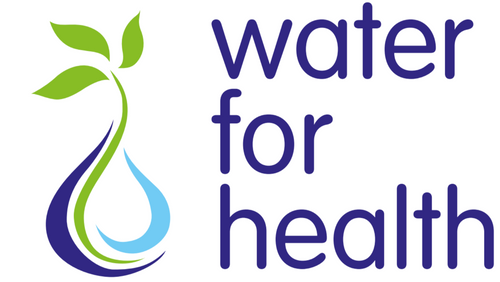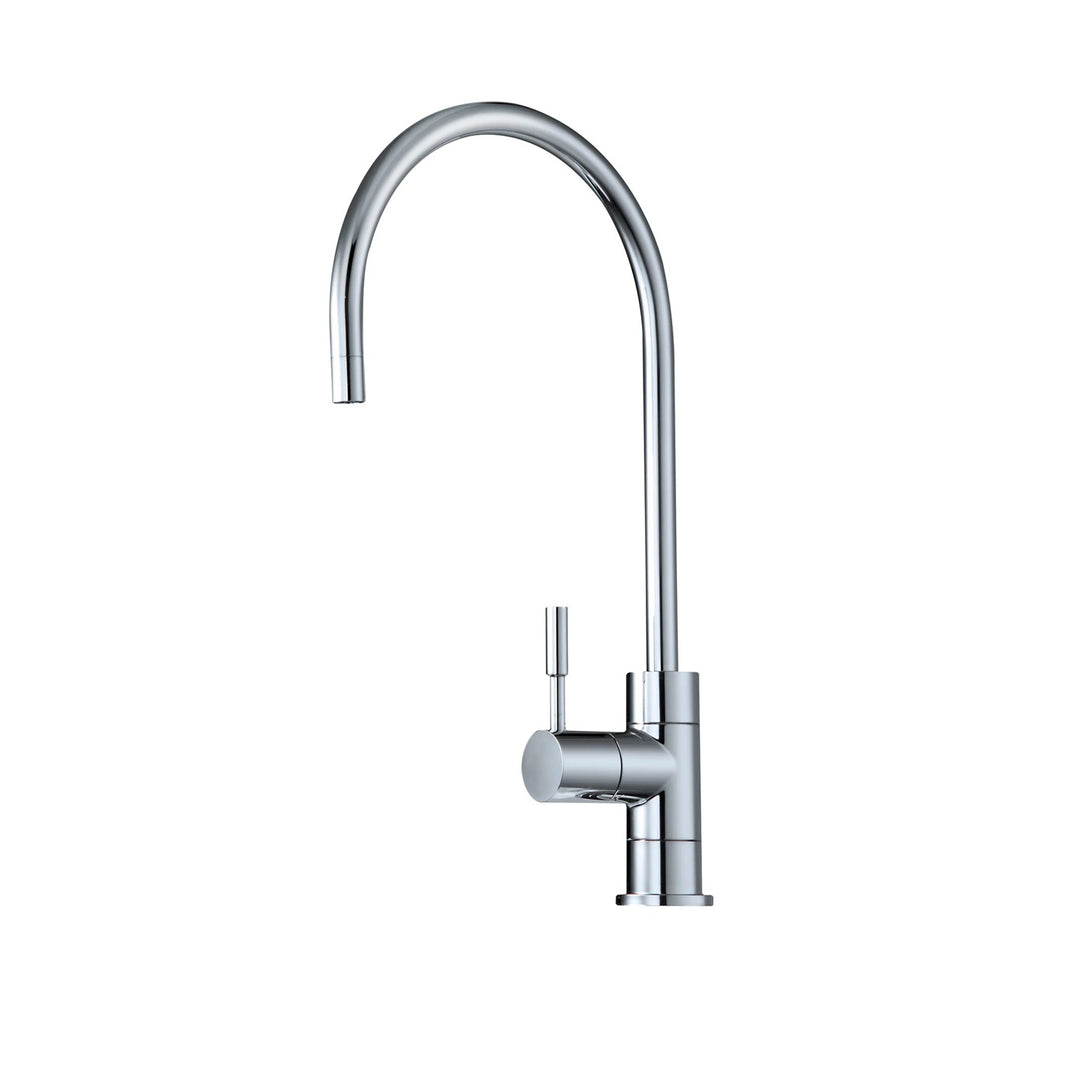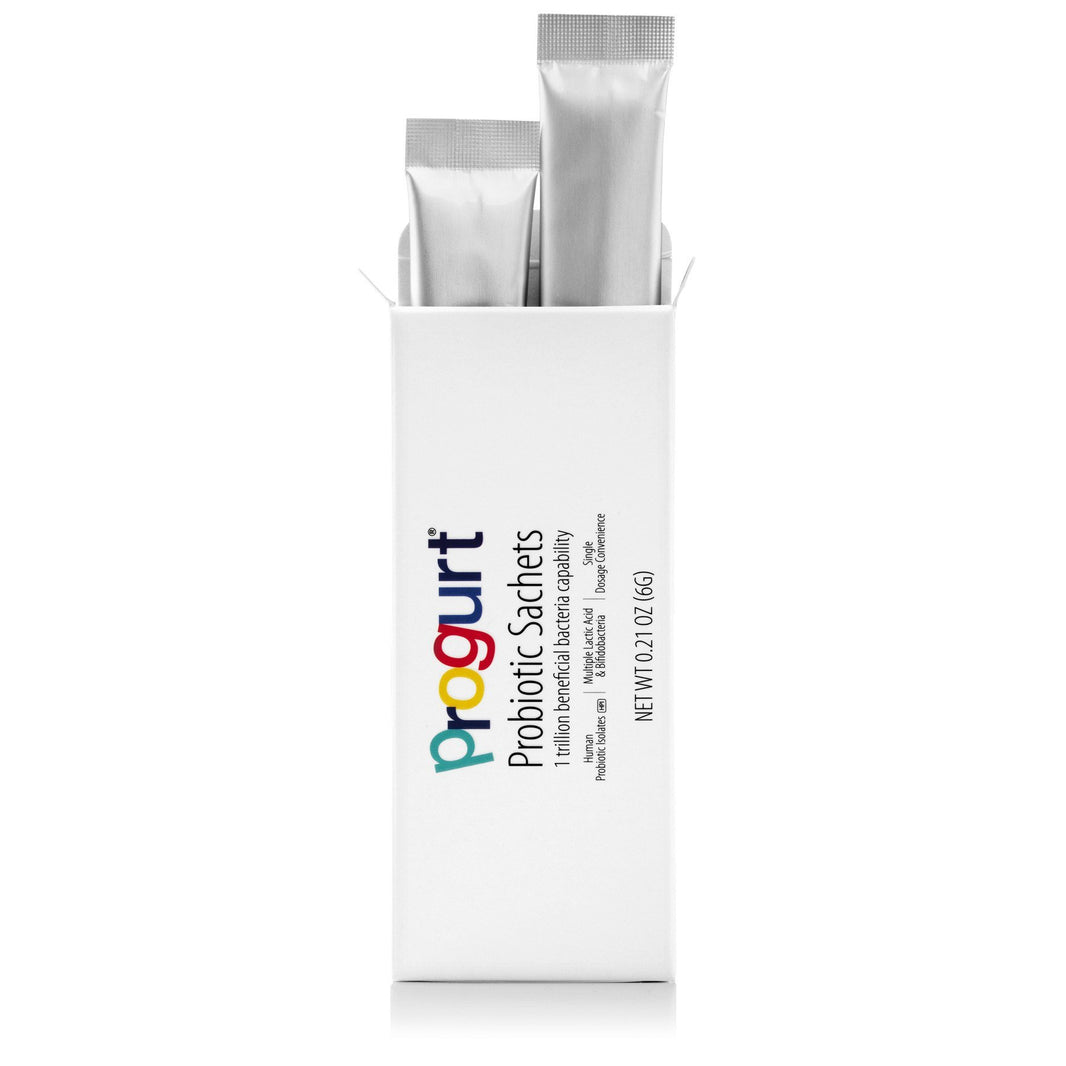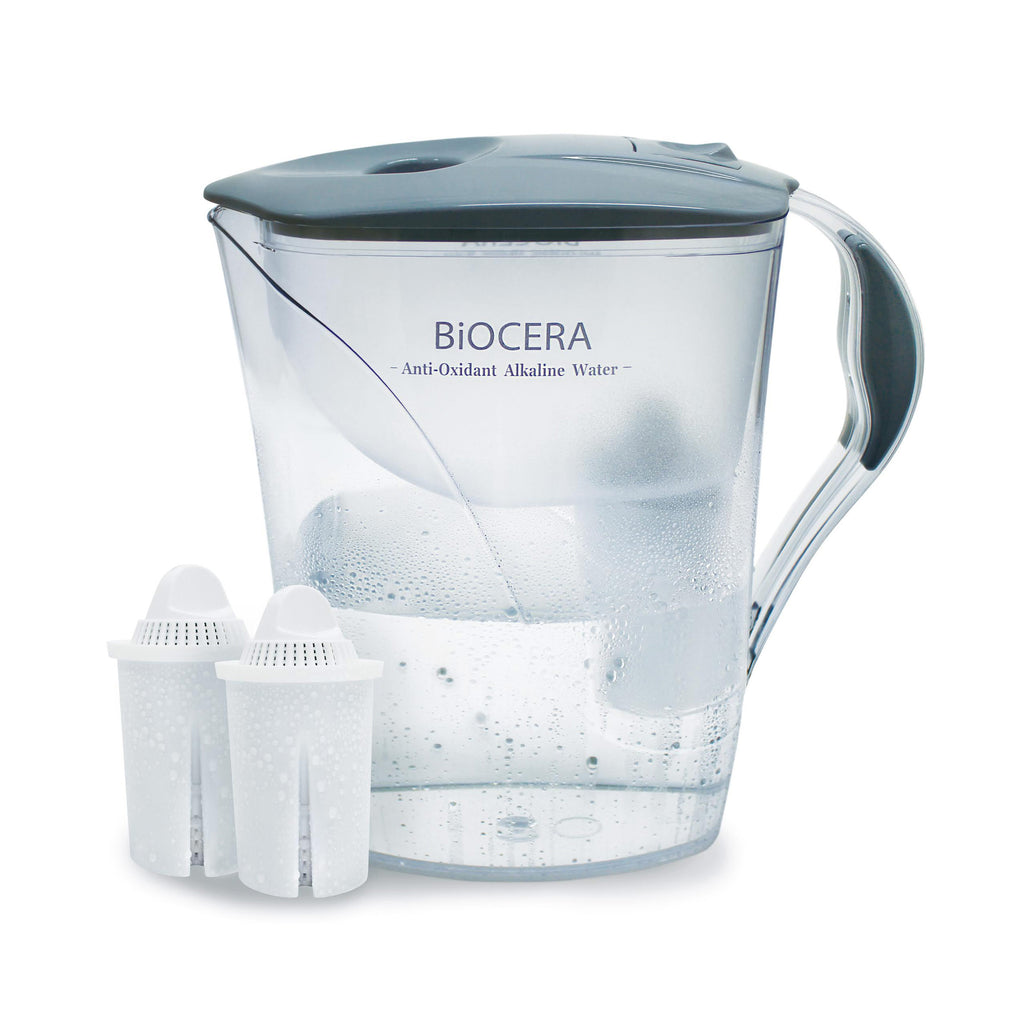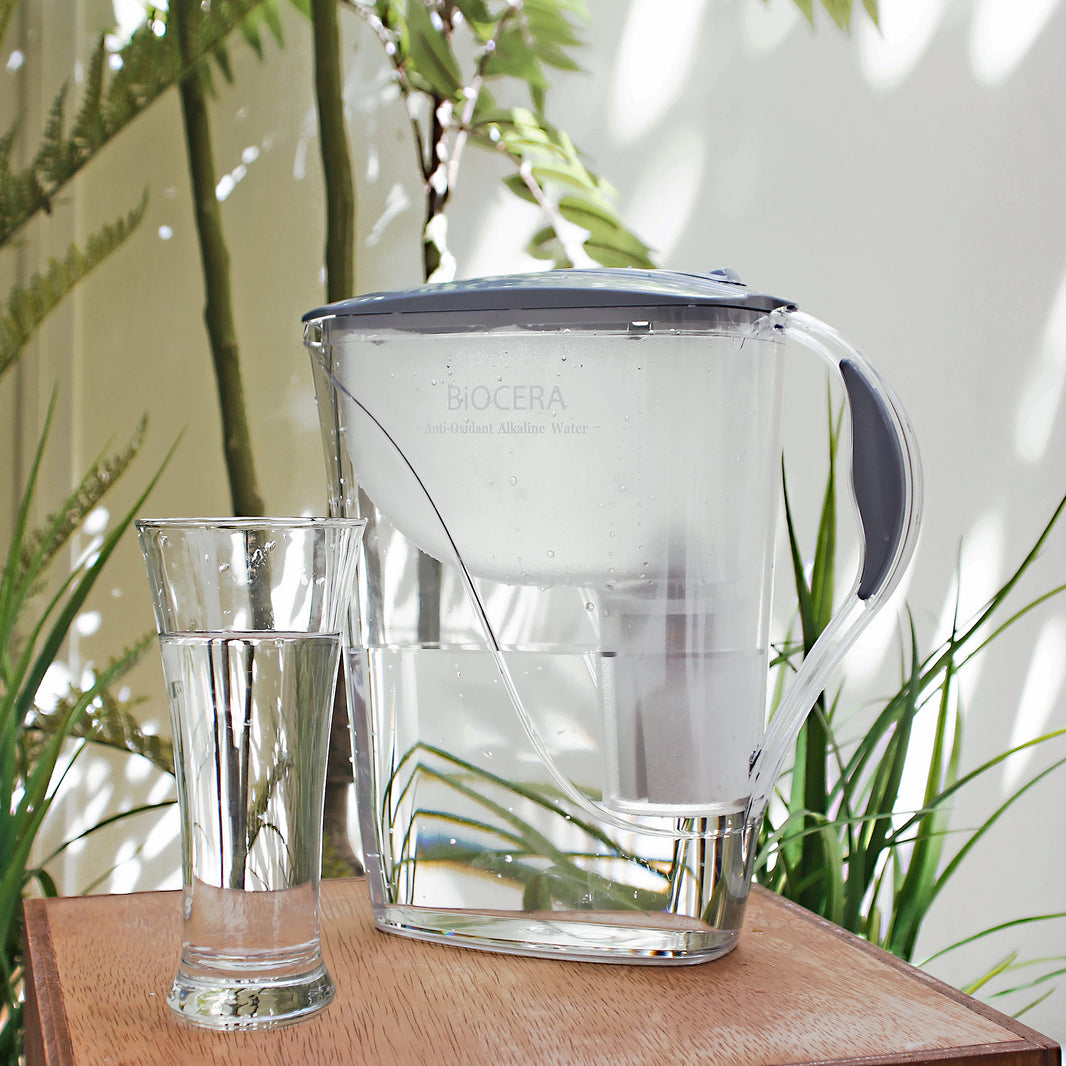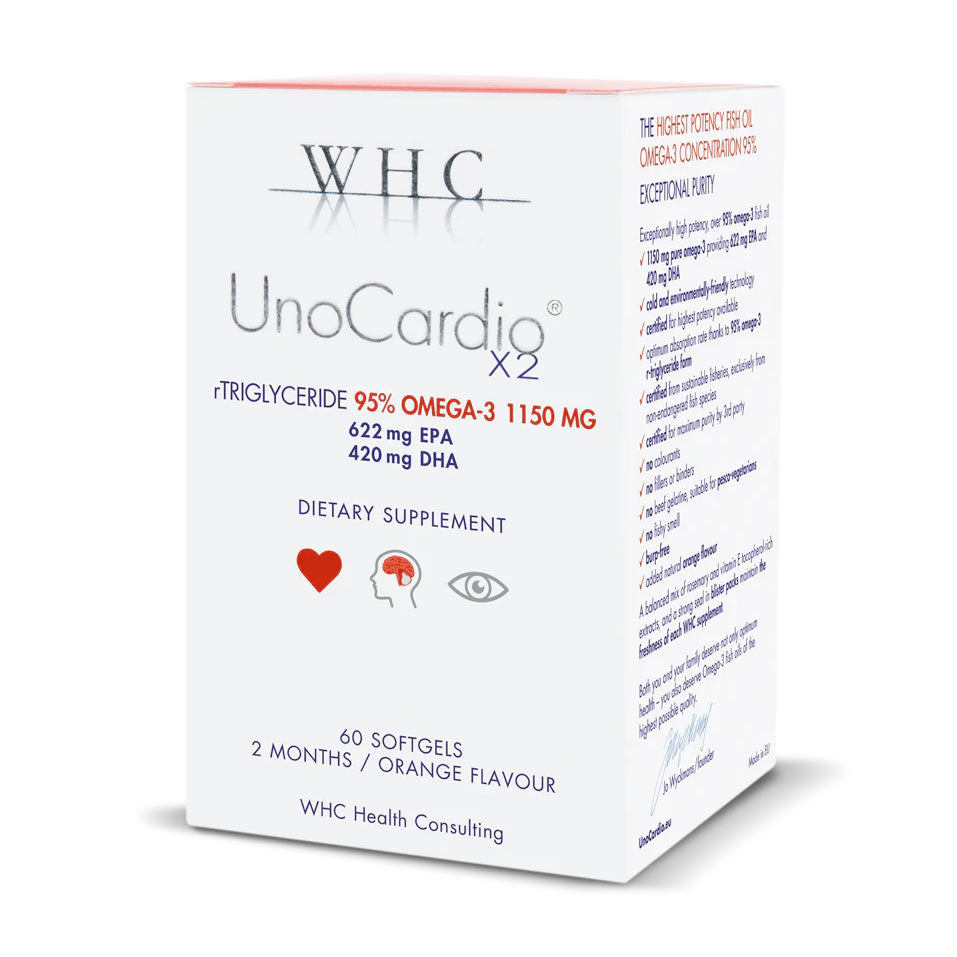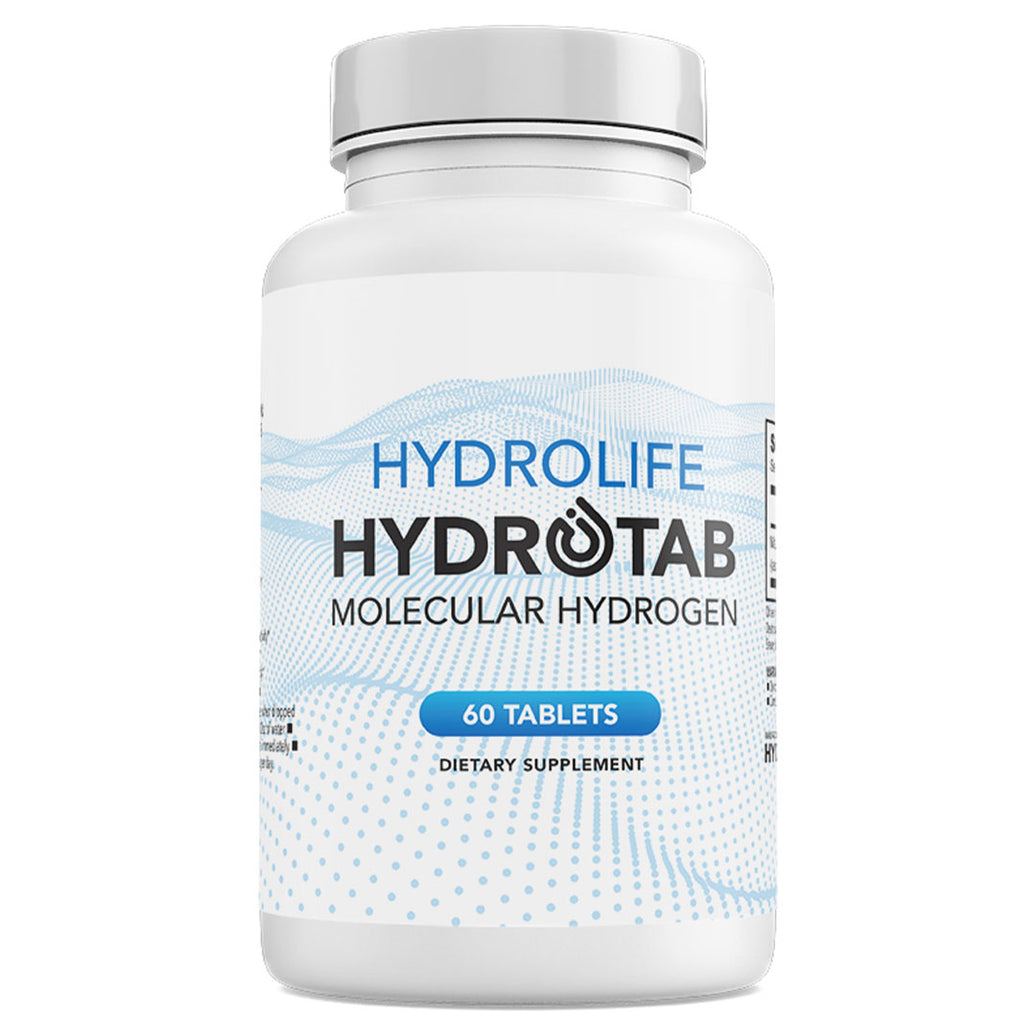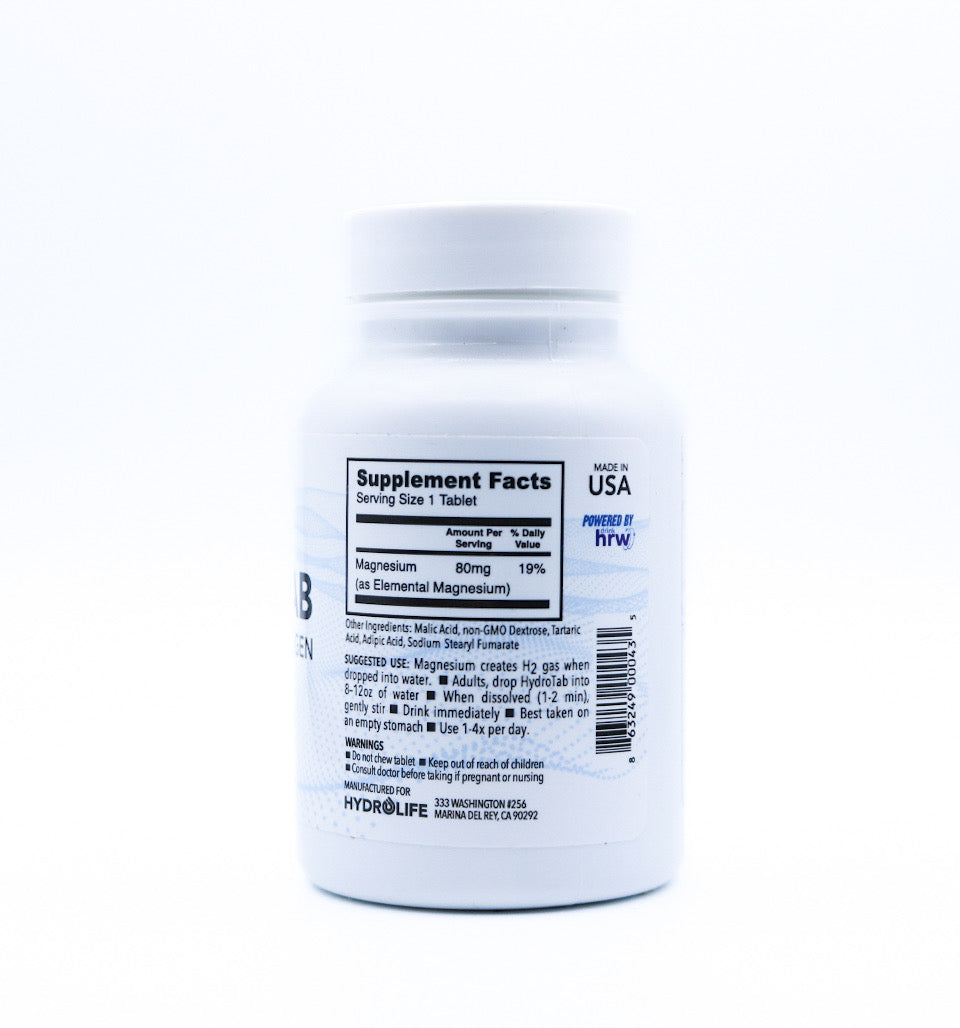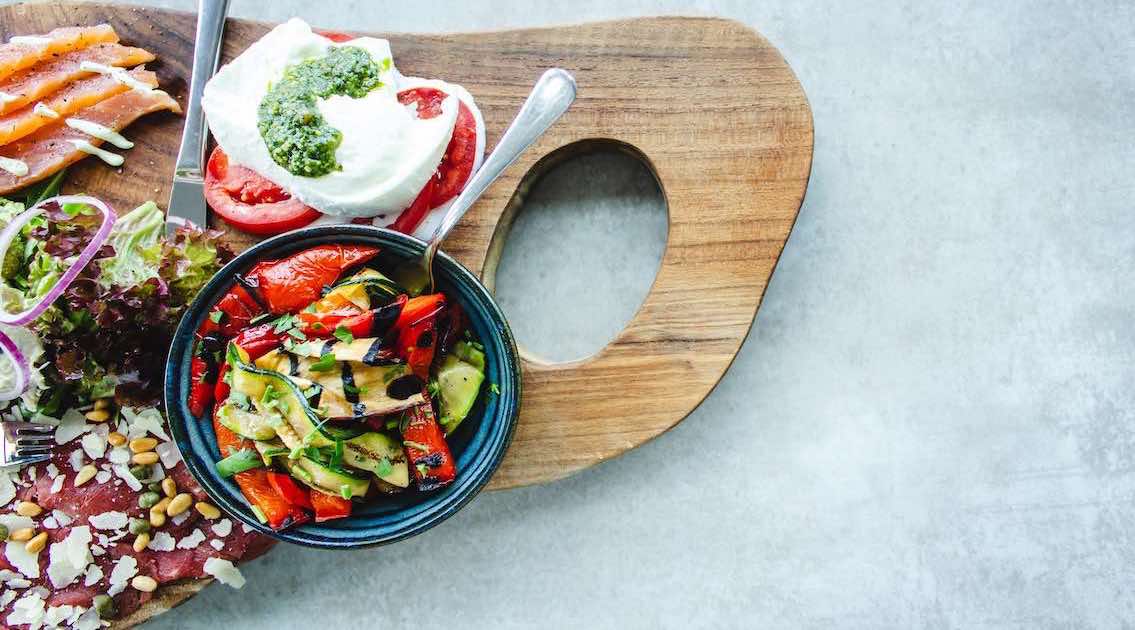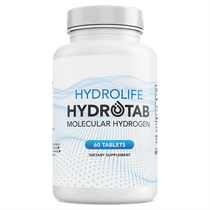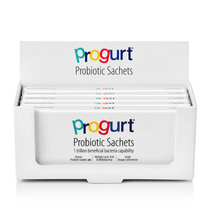Eating the right foods can have an extraordinarily positive effect on your mood.
A proper diet, focusing on fresh, whole foods, healthy fats, proteins, fibre and low sugar can provide a solid foundation for a more balanced state of mind, stable moods, focus, clarity and increased energy.
Whether you're suffering from depression, anxiety, chronic stress, mood swings, anger issues or any other mental health issues, here are eight essential nutrients to include in your daily diet. **If you are taking any medication, please check any dietary changes with your GP.
1) Water
Have you ever noticed whether you become more short-tempered, irritable or moody if you’re dehydrated? The brain is around 80% water, so you need to keep it hydrated to function properly and help balance your moods.
Research has shown that increasing your water intake can positively impact your mood on waking as well as boosting positive emotions, generating feelings of calmness. It can also help cognition, concentration and focus and improve headaches.
So how much water should you drink? There’s no definite amount, and it varies from person to person. A good benchmark is two litres or 8 x 8oz glasses a day. Your needs will increase if you are pregnant or exercising.
Caffeinated drinks like tea or coffee are dehydrating, so you need to have an extra two glasses of water for every cup.
For more information on how to properly hydrate, click here.
2) Fish oils and other healthy fats
Your brain is the fattiest organ in your body and is roughly 60% fat.
Omega-3 fats are essential for your mental-emotional wellbeing. They help reduce inflammation and oxidative stress in the brain, improving cognition, alertness and concentration. They also increase dopamine, improve mood and may help to ease anxiety.
The EPA and DHA found in oily fish are of particular importance, and low levels can make you more susceptible to depression.
If you want to optimise your brain function and look after your mental health, you could benefit from eating oily fish three times weekly. Eat mackerel, wild salmon, sardines, herring (kippers), and anchovies.
Also eat plenty of other omega-3 foods including shellfish, walnuts, other nuts and seeds including chia seeds, linseeds, hemp seeds, eggs and avocados. In addition, eat healthy fats like olives, cold-pressed olive oil and raw coconut oil.
Avoid unhealthy fats like trans fats or ‘partially hydrogenated oils’. You’ll see these on ingredients lists of shop-bought foods including biscuits, cakes, ready-made meals, pizzas and snack foods. They’re also present in fast foods and takeaways.
While more research is needed, there is mounting strong evidence supporting fish oil supplementation for depression and anxiety. So, if you’d rather take a supplement, take daily fish oil capsules. Taking one with higher concentrations of EPA to DHA appears to have the most effect.
Make sure it’s a clean, high potency fish oil supplement that is sustainably sourced and free from contaminants. Look for accreditation and transparency of testing.
Related: How Toxic is Your Fish Oil?
3) Probiotics and prebiotics
Your gut and brain are connected. If you are stressed or unhappy, it disrupts your digestion and gut health. The reverse is also possible – if your gut function is impaired, it can affect your mental-emotional wellbeing, creating or intensifying feelings of anxiety, low moods and increased stress.
For a healthy gut, you need to eat a balanced whole food diet with a range of vegetables, fruits, beans and legumes, nuts, seeds and whole grains etc.
You need to include healthy proteins and fats and complex carbohydrates with every meal. To encourage a balanced, diverse and dynamic mix of gut microbiota (bacteria, fungi and viruses), you need variation within each food group.
Aside from a varied, balanced diet, it’s good to focus on eating probiotic-rich foods and also prebiotics daily. Probiotic foods enrich your gut with ready-made bacteria, while prebiotic foods stimulate bacterial growth.
Probiotic foods include raw fermented pickles like sauerkraut, gherkins, kimchi and kefir. You can drink or brew your own kombucha. Also, try live yogurt, tempeh, miso and natto and raw apple cider vinegar.
Prebiotics are non-digestible fibre compounds which you’ll find in certain foods. Try under-ripe bananas, apples, raw garlic, leeks and asparagus and raw or cooked onions. You can also eat barley, oats and raw chicory root or dandelion greens.
If you’d like to take a daily pre or probiotic supplement, then have a look at our Progurt Probiotic range. It supplies an assortment of gut health supplements cohesively designed to restore harmony in your gut and other related organs.
4) Zinc
Zinc is an essential mineral, and it is not uncommon to have low or deficient levels. This is partly because our bodies don’t store it, so for adequate zinc levels, it’s essential to eat a balanced diet abundant in zinc foods.
Zinc is necessary for healthy brain function, memory and learning, regulating mood and preventing conditions like depression, hyper-anxiety and other mood disorders. In research, low zinc levels are linked to depression.
You need the right amount of zinc for healthy gut function. Without it, you don’t produce enough digestive enzymes, and your absorption of nutrients is impaired. You can suffer from digestive issues like constipation.
Zinc also helps rebuild and preserve your gut lining, protecting against and easing the symptoms of gut dysbiosis, leaky gut, IBD, Crohn’s disease and other inflammatory gut conditions.
Zinc helps to break down food, particularly proteins which we need for maintaining ‘feel-good’ neurotransmitters like serotonin and dopamine. Consequently, if your zinc is low, it can adversely affect your cognitive function and your moods.
If you suffer from hormone imbalance, are perimenopausal or menopausal, or struggle to maintain healthy blood sugar levels, your moods, mental outlook, and brain function can all suffer.
Zinc is invaluable when it comes to hormone balance, and also plays a role in the synthesis, storage, and secretion of insulin which helps with blood sugar balance.
For more information on zinc, click here.
5) Protein
You need amino acids (protein) to produce and maintain the prolific amount of neurotransmitters required for normal brain function. These include ‘feel-good’ ones like serotonin, dopamine, oxytocin and endorphins. These help to energise you, improve cognitive function and regulate your thoughts and feelings.
So, when your neurotransmitters are firing and wiring at optimal levels, you are more balanced, sleep better, have increased motivation and feel happier.
Your blood sugar balance also affects how you feel mentally and physically. If you’re consuming carb-loaded and sugary foods and drinks regularly, ensuing blood sugar spikes and crashes drain your energy and kill your mood, making you cranky, less tolerant, angrier, and your moods can wildly swing. It can also cause feelings of anxiety and depression.
Aside from eliminating unhealthy, sugary foods from your diet, by adding healthy protein to every meal, you can help to regulate your blood sugar.
Protein helps to slow the sugar release from your food, keeping your glucose levels on a more even keel. You have more sustained energy and feel more stable.
Add healthy proteins like these to every meal – chicken, turkey, lean red meats, fish and shellfish, eggs, nuts and seeds, beans, lentils, legumes, oats, buckwheat and quinoa.
6) Magnesium
You need magnesium to help buffer the negative impact of anxiety and stress. It soothes your nervous system, helps to balance your moods and can ease the symptoms of depression. Magnesium can also improve your sleep and energise you as well as enhancing brain function.
Magnesium is crucial for many bodily functions, and it can become quickly depleted. Like zinc, we don’t store it and need to replenish our levels by eating foods that can provide adequate amounts of this essential mineral.
When you are stressed, anxious or depressed, you pull on your magnesium stores even more, and the likelihood of you becoming depleted is substantially increased. In this case, you need to place extra focus on boosting your magnesium levels.
Every day, eat plenty of magnesium foods including spinach and other dark leafy greens like chard and kale. Also consume a range of nuts and seeds including almonds, pumpkin seeds, linseeds and chia seeds.
Beans are rich in magnesium, and broad beans are especially high. Add some healthy whole grains like buckwheat and oats. Eat fish – mackerel, and halibut especially contain healthy amounts of magnesium. Also, eat fruits, including avocados and bananas.
It might be advisable to take a magnesium supplement if you are going through a period of increased stress, or your mental health is suffering. Remember to take it in addition to a healthy, balanced diet. You could also indulge in a regular Epsom salts bath or foot soak. Add a couple of cups and relax for 40 minutes to absorb the magnesium.
7) Complex carbs
In addition to healthy fats, your brain needs carbohydrates for fuel – but the right kind.
All carbohydrate foods release glucose (which provides energy) into your bloodstream. The trick is to eat carbs that release it nice and steadily.
Simple carbs (white bread, rice, pasta, pizza, crisps, fries, cakes and other processed foods) have a fast sugar release which can cause your blood sugar to become unstable, it quickly shoots up, then rapidly falls, with mood swings and energy slumps as a result. They also lack in vitamins, minerals, fibre and other nutrients.
The best types of carbs for your brain, body and moods are complex carbohydrates. They are less processed and higher in fibre and other nutrients. They are more substantial and satisfying and have a slower sugar release.
So, rather than eating highly processed carbohydrate foods, opt for the whole food, complex version instead, perfectly packaged to provide the right kind of energy and encourage a healthy blood sugar balance.
Some excellent complex carbohydrate choices would be oats, quinoa, beans and lentils. You could also try starchy vegetables like parsnips, carrots, swede, butternut squash, pumpkin, and potatoes.
When it comes to grains, go for rye, wholemeal, or spelt versions as opposed to white. Choose brown rice, wholemeal pasta, and oatcakes (rather than white crackers).
Choose these for every meal, and you will find not only do you feel more energised, but you’ll feel fuller for longer. A common go-to vegetable is potatoes, and while they are a great whole food, always eat them with the skin on as you will get more fibre and a slower sugar release.
Mix it up too: swap potatoes for sweet potatoes and mix up the starchy vegetables so you can get a well-rounded range of nutrients.
Which Food Should You Avoid for Better Mental Health?
This can be a tough one to eject from your daily diet, especially if you eat a lot of it. Sugar is incredibly addictive; it’s like cocaine for the brain. The more you eat, the more you crave, and it can be really hard to stop.
Some advice? If sugar is a tough thing for you to give up, wean yourself off it gradually – you’re more likely to kick the habit that way.
Several studies link sugar to depression in both men and women. Research also shows that people who eat fewer vegetables, fruits and pulses and a high sugar diet are more prone to depression.
It messes with your blood sugar, causing mood swings, anxiety, irritability and anger and while it may initially energise you, the sugar rush rapidly crashes, and you feel tired and exhausted.
Keep doing this regularly, and not only does your mental health suffer, but your physical health does too. The constant strain a high-sugar diet puts on you and your endocrine system leads to an increased risk of metabolic syndrome, type 2 diabetes, heart disease and other serious medical conditions.
Over consuming sugar causes an imbalance of brain chemicals which, aside from depression, can lead to a long-term risk of developing a mental health disorder. You are also less able to cope with stress and more prone to anxiety. Plus it zaps your brainpower, impairing cognitive function.
If you try to come off sugar and find it difficult, seek the help of a nutritional therapist who can motivate and guide you through the process in a way that’s suitable for you.
Some tips are to become aware of hidden sugars in processed and prepackaged foods as well as condiments like ketchup, brown sauce, salad dressings and mayonnaise. Get familiar with the myriad of different names for sugar – you can find lists online, but some common ones are fructose, sucrose, dextrose syrup, maltose, agave nectar and cane juice.
Caffeine can also affect your blood sugar levels. It’s a stimulant, so while it may give you a quick burst of energy, you can then crash, just like a sugar rush. It may also contribute to feelings of anxiety and can disturb your sleep if you consume too much. So curb your intake of tea, coffee, coke, and energy drinks.
Artificial sweeteners are also a no-go (aspartame, saccharin and sucralose are common ones). They still negatively affect your blood sugar and can cause obesity and poor gut health.
Eat regularly to avoid blood sugar slumps and if necessary, have a small healthy snack between meals. You need a balance of healthy fats, protein and complex carbs. Good examples of healthy snacks are a couple of oatcakes with nut butter, a boiled egg, a small apple or pear with a few nuts or seeds, a spoonful of full-fat natural yogurt with a sprinkling of seeds and some berries, or some crudites with a little houmous.
For more handy tips on how to balance your blood sugar, click here.
Conclusion
Good nutrition plays an invaluable role in mental health. For some people, diet isn’t the whole story and while eating the right foods is essential, it’s one part of their treatment plan. For others, by simply adjusting your diet to incorporate some of the suggestions listed here, you could experience a profoundly positive difference in how you think and feel.
You need the right balance of nutrients for good mental health, and they are not all mentioned here (others include vitamin D and plenty of fibre). The ultimate key to getting the right balance of vitamins, minerals, macro and micronutrients for healthy moods and brain function, is to eat a balanced and diverse diet.
For the majority of your diet, consume whole natural foods, including healthy fats, proteins, carbohydrates, whole grains, fibre, nuts and seeds, and a rainbow of vegetables and fruit. Drinking enough water is also crucial.
Eating a vast range of vegetables and some fruit will provide many of the nutrients you need to stay healthy and balance your moods. Eating a large variety will improve gut bacteria diversity. They will also provide fibre to keep your blood sugar balanced and help regulate digestion.
For more calm, balanced moods, better energy and a brighter outlook reduce your sugar intake and balance your blood sugar. Also, eat regularly to avoid blood sugar spikes.
Get lots of sunshine during the summer months. It will lift your mood and provide you with vitamin D. You might also consider taking a supplement, particularly during autumn and winter.
By Rebecca Rychlik, Nutritional Therapist and Homeopath. Follow Rebecca on Instagram, Facebook and Medium, @rebeccabitesback.
Water for Health Ltd began trading in 2007 with the goal of positively affecting the lives of many. We still retain that mission because we believe that proper hydration and nutrition can make a massive difference to people’s health and quality of life. Click here to find out more.

